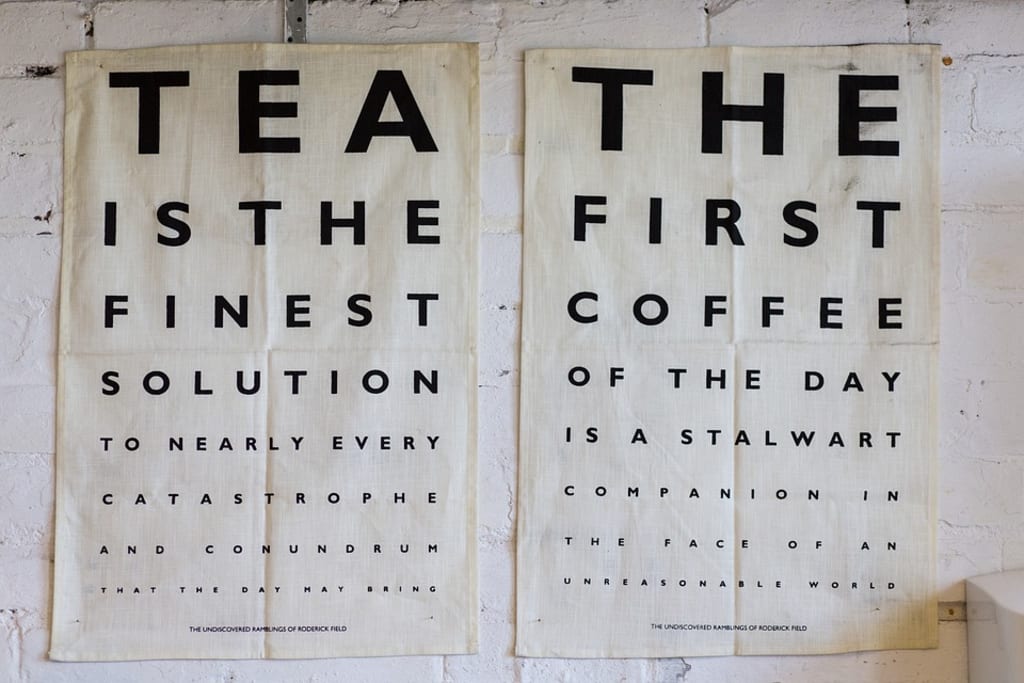Is Organic Coffee Healthier Than Tea?
What's the healthiest way to kick start your morning?

Both tea and coffee are versatile, delicious drinks that can wake you up and put some pep in your step. While these drinks are similar, many people automatically make the assumption that tea must be the healthier option. However, coffee doesn’t exactly deserve the bad rap that it gets. Coffee, especially organic coffee, might actually be much healthier for you than you ever thought.
Organic Versus Conventional
Organic foods have been a hot topic of conversation for years now. Proponents tout that organic foods are safer and more nutritious, while detractors say that the difference is negligible and that GMO crops sprayed with widely available pesticides are easier to grow and have higher yields. While it is true that GMO foods are certainly capable of feeding a lot more people using less space, organically grown foods do have less exposure to harmful chemicals and have been shown to have a higher concentration of nutrients and flavonoids. This means that not only are organically grown products healthier in general, they also tend to simply taste better.
The differences between methods in which foods are grown are especially important when comparing organically and conventionally grown coffee. Coffee is one of the most widely traded commodities in the world, and in order to meet demand, farmers have relied heavily on modern farming technology and techniques to maximize their yields. This results in conventional coffee beans being subjected to synthetic fertilizers and harsh chemicals during production, whereas organic coffee is grown exclusively with organic fertilizers like chicken manure, compost, or even coffee pulp.
The benefits of consuming organic coffee go far beyond simply enjoying a healthier cup of coffee. By buying organic, you are creating a positive environmental impact and even helping with the health of people you’ll likely never meet. Workers on organic farms are not exposed to the high quantities of harmful chemicals that workers on conventional farms have to contend with due to their use of inorganic pesticides and fertilizers. Additionally, the land around organic farms tends to be much healthier because there are no harmful chemicals present to leach into the soil or nearby drinking water.
Tea or coffee?
Both tea and coffee are delicious beverages that come in a wide variety of flavor profiles, and both can help to boost energy levels. While tea has a long history of recorded health benefits, from boosting brain function and health to helping with weight loss, coffee has had a more contentious history in the medical world. In the past, coffee has been vilified and blamed for a host of health problems. For example, some have claimed that coffee dehydrates users—though the water content of coffee more than compensates for the dehydrating effects of caffeine. As claims like this have been studied further, many of them have been thoroughly debunked.
Though coffee and tea both have their strengths, there are still some major differences between the two drinks other than taste. If your main concern is whether tea or coffee will give you more of an energy boost, the two could not be more different. Coffee is the undisputed king of caffeine, containing more caffeine across the board when compared to tea. While this higher amount of caffeine can give you an immediate energy boost, tea contains an amino acid called L-theanine which slows the absorption rate of caffeine, which provides a longer lasting energy boost and is less likely to cause a “caffeine crash.”
It is important to note that the higher levels of caffeine in coffee might not be the best for everyone. Health issues specific to women can be exacerbated by excessive caffeine consumption, and it is important that women pay extra attention to their health if they are heavy coffee or tea drinkers. Women are more prone to heart disease, which can be made worse by caffeine raising their blood pressure. Pregnant women should also avoid caffeine, as heightened stress levels caused by caffeine consumption can have negative impacts on an unborn child.
Tea and coffee both have health benefits.
When weighing whether tea or coffee is better for your health, it is important to look objectively at the different benefits of each and take into account exactly what you’re looking for from your morning beverage. While teas can have a positive effect on your overall heart health, darker teas are also likely to stain your teeth, and drinking too much tea can reduce iron absorption rates. Coffee has been shown to boost concentration and memory, reduce cognitive decline, as well as support heart and liver health—the positive effects only compounded when purchasing organic coffee. Unfortunately, coffee can also lead to indigestion, high blood pressure, and insomnia with excessive consumption.
There are even more health benefits associated with drinking coffee than brain, heart, and liver health. Coffee has been shown to reduce the risk of developing type two diabetes, uterine cancer, and gout. Moderate coffee consumption has even been associated with an eight to 15 percent reduction in the risk of death.
Not to be outdone, chai tea, which contains some of the most medicinally active spices and herbs, also provides some astounding health benefits. Chai tea is chock-full of antioxidants and has been shown to reduce the risk of rheumatoid arthritis, help to heal swelling and inflammation, fight infection and viruses, and even have anti-cancer properties. In addition to all the health benefits associated with chai tea, it is also a delicious, spicy, and aromatic treat!
When it comes down to it, both tea and organic coffee are great options for a breakfast beverage that will give you a head start on the day. At the end of the day, it all has to do with your preference and what you’re looking for in a drink. The benefits of organically sourced foods can be found in both tea and coffee.You just have to make the extra effort to find it.
About the Creator
Ainsley Lawrence
Ainsley Lawrence is a writer who loves to talk about good health, balanced life, and better living through technology. She is frequently lost in a good book.






Comments
There are no comments for this story
Be the first to respond and start the conversation.